Agenda 2021: Mindsets and books for the New Year and beyond
Speakers at the Bangalore Business Literature Festival share insights on resilience, entrepreneurship, environmental protection, and dealing with a fractured world.
The sixth annual Bangalore Business Literature Festival (BBLF) was moved entirely online this year due to the COVID-19 pandemic. YourStory is the media partner for BBLF; see Part I, Part II, Part III, and Part IV of our preview coverage, as well as articles on earlier editions of the festival in 2019, 2018, 2017, 2016, and 2015.
See also YourStory’s Book Review section with reviews of over 275 titles on creativity, entrepreneurship, innovation, social enterprise, and digital transformation.
In our final article on BBLF, we tie together takeaways from the panel moderators on key topics such as business resilience, social entrepreneurship, environmental change, brand responsibilities, and reading lists for the future.
Pandemic impact
The coronavirus pandemic has triggered off a health, social, and economic crisis around the world. Impacts, trends, and resilience measures were discussed in a panel titled ‘Non-obvious Trends Shaping Businesses, Careers, and Societies’ (see video here).
It featured Rohit Bhargava (Non-Obvious Trends), Prateek Raj (Evolution of Business and Markets: How Free and Inclusive Societies Emerge), and Sandeep Das (Hacks for Career and Life).
The pandemic has challenged us to reflect on whether the work we do is really essential in the big scheme of things, what track our life is on, and what impact we can have. People will have to plan even more for multiple careers and side careers.
The pandemic has accelerated trends like the use of digital media for remote learning and getting “instant knowledge.” The pandemic is one of many shocks that humanity has faced over the decades, and will spur new innovations as well as concerns over social safety nets.
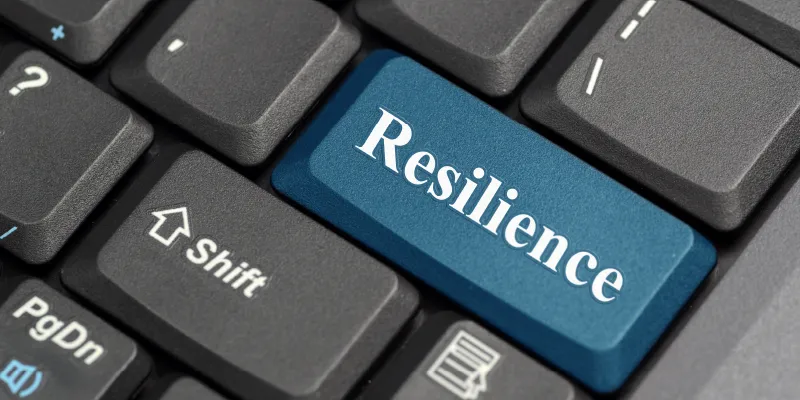
The business of publishing
The above three panellists also discussed different styles and practices of book publishing. Some types of business writing are coupled with speaking circuits and consulting practices. Books can also evolve from collections of essays and lectures. Consultants who may not like writing as much should get a writing partner.
Academic styles of business book publishing have longer cycles due to extensive peer review and exhaustive research but can have a longer shelf-life as a result. Today, book publishing needs to factor in other players across the time-frequency spectrum like social media, newspapers, magazines, Netflix, and full-length films.
Some book content also needs to be repackaged across different media formats and lengths. In successive waves, media evolution has democratised the sharing of ideas, while also introducing new types of challenges.
The COVID-19 pandemic has impacted reading habits and the publishing scenario, according to V Raghunathan, BBLF Chair and author of Games Indians Play, Ganesha on the Dashboard, The Corruption Conundrum, and Locks, Mahabharata and Mathematics (see video here).
Physical sales of books at airports and bookshops have plunged, and publishers are easing down on their publishing plans. The segment of literary agents is conspicuously absent in the Indian publishing industry, and its impact is being seen now as well.
Online publishing and self-publishing are gathering steam, with benefits of faster publishing times and flexible pricing. But there are also challenges of less quality and marketing support.
Startups and scale-ups
Entrepreneurial skills are in high demand in the pandemic era of uncertainty and risk. Hard-earned lessons from founders were shared in a panel anchored by TN Hari (The Making of Big Basket), featuring Sidharth Rao (How I Almost Blew It), Rahul Chandra (The Moonshot Games), and Karthik Kumar (Don’t Start Up) – see video here.
Domestic and foreign VC funds have stepped up their game in the Indian startup ecosystem over the last 15 years. Ambitious funds like Tiger Global and SoftBank helped Indian entrepreneurs make bold bets and create new markets, going beyond existing markets. Some investors made it big, others missed out on precious opportunities.
Some of the under-rated enablers of founder success are the role of parents. Founders also need to acknowledge the role of luck in their success and should have the humility to recognise and acknowledge it.
The media often depicts entrepreneurs as cool, but behind the few successes are the failures and hardships of hundreds of other entrepreneurs. Founders should start up for the right reasons, and not from illusions about instant fame.
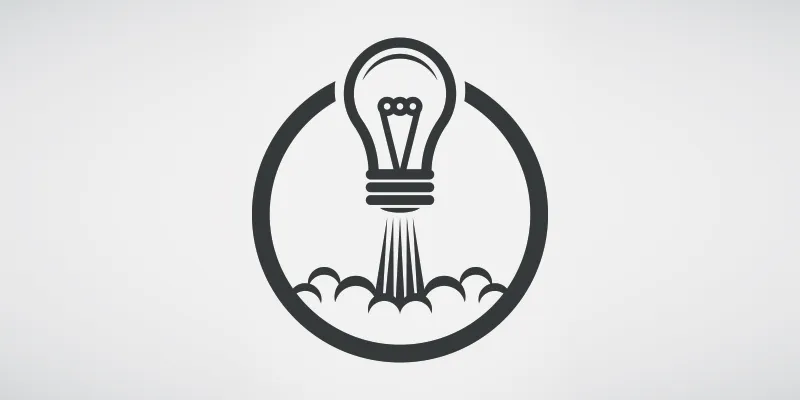
The entrepreneurial mindset
The combination of corporate scale and professionalism with the entrepreneurial mindset (“entrepreneurial professionals”) was discussed in a session with Sudhir Sitapati (The CEO Factory: Management Lessons from Hindustan Unilever) and Srinivasa Addepalli, Co-founder of GlobalGyan (see video here).
HUL has nurtured in its managers a high level of ownership and agility. The management trainee programme grounds its managers at the frontline even as they rise up the ranks, making them comfortable with “Lakhanpur as well as London”.
The factory township model helps create a familial culture in organisations, as seen in Port Sunlight, a township built by Lever Brothers in 1888, as well as Jamsetji Tata’s conceptualisation of Jamshedpur for Tata Steel.
The role of a physical space for working and living could take on particular significance for planners in a post-COVID world, where concepts of work-life integration are being reimagined.
Social entrepreneurship
The social enterprise sector plays a foundational role and has received a significant boost during the pandemic era, as discussed in a panel titled ‘Social Entrepreneurship: How to Get the Best of the Two Worlds’ (see video here).
It featured Madan Padaki (Global Alliance for Mass Entrepreneurship), Madhukar Shukla (Social Entrepreneurship in India), and Anuja Master Bose (advisor for social enterprises and philanthropy), in conversation with Smarinita Shetty, Co-founder and CEO, India Development Review.
What sets apart a social entrepreneur from any other entrepreneur is purpose and intentionality. Social entrepreneurs factor in the needs and aspirations of not just shareholders and investors but also employees and customers as well as their families. They also need to ensure that they are not harming the environment in the process.
These conversations about competing pressures define the difference between a purely commercial enterprise and a social business. Social enterprise is a way of life and entails multiple paths. It involves passion and inner journeys of founders.
Fortunately, awareness about the power of social entrepreneurship is increasing. There is growing interest in social businesses from both philanthropies as well as pure-play VCs, resulting in an increasing mainstreaming of impact.
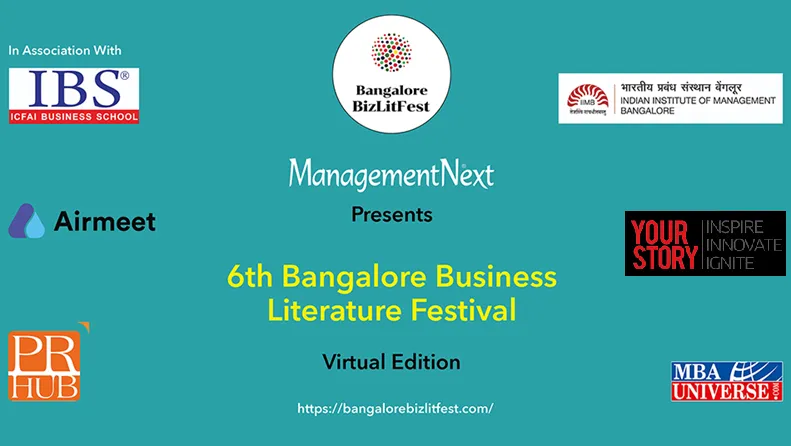
Inner journeys of entrepreneurs
In addition to strategy and tactics, entrepreneurship is also about spiritual exploration, as discussed in a conversation titled ‘Becoming You: The Inner Journey Chronicles’ with Alok Kejriwal (Why I Stopped Wearing my Socks; The Cave: An Internet Entrepreneur’s Spiritual Journey) and Caroline Cares (Becoming You: Stories of Courage and Vulnerability) – see video here.
The challenges of the pandemic era have shown that traditional ways of understanding and executing business are no longer the only way. Many business fundamentals are being questioned, and fractured beliefs are being unearthed and questioned by mentors and coaches.
India has an edge in ancient techniques on focus and change, but some of this may have been lost in trying to ape the West. Fortunately, there are collectives who are deeply invested in reviving and embodying these principles.
Traditional and modern practices can combine to unpack abilities for moving from survival mode to powerfully thriving through uncertainty and chaos. These innate abilities can be remembered and released now.
The India edge
Combining eastern and western approaches to management can yield useful insights, according to Vladi Ruppo (Lord Ganesha's Laptop), a Russian-Israeli expat who spent 18 years in Bengaluru, in a session moderated by Sumathi Chari, Director, PRHub (see video here).
A combination of emphasis on leadership and a culture of humility and support is advantageous, which can play to India’s strengths. Indian cities like Bengaluru represent the “software Varanasi”, where legacy systems are sent to die, and India could well become the “ultra-modern software rejuvenation clinic.”
Climate change and future generations
The pandemic crisis has shone a harsh light on human vulnerabilities and excesses, as well as larger looming challenges of climate change. Trends and responses were discussed in the panel ‘Writing on the Wall: How Authors are Influencing Climate Change & Sustainability Discourse’ (see video here).
It featured Navi Radjou (Frugal Innovation), Meghaa Gupta (Unearthed: An Environmental History of Independent India), and Harini Nagendra (Cities and Canopies), in conversation with Benedict Paramanand (CK Prahalad: Mind of the Futurist), BBLF Founder and Editor of SustainabilityNext.
Generation X’s efforts to reduce the carbon footprint has had limited impact on stopping run-away climate crisis, and even the efforts of Gen Y to enlarge the positive ecological handprint will not halt climate disasters from occurring often.
The hope for the world lies with Gen Z and Gen Alpha, as seen in the activism of 16-year-olds like Greta Thunberg. They are moving the consciousness towards nature from ‘protecting or regenerating’ to feeling for nature, according to Navi.
Children who are seeing nature disappearing in front of their eyes have the power to influence policies and behaviours of the older generation, according to Meghaa. One of the ways this can be done is by producing interesting and impactful children’s literature on ecology and the environment. The hope is that the speed of destruction can be forced back by powerful messaging in innovative ways.
Communities as change agents are beginning to make their impact by organising themselves around common issues. There is good demand for jobs on development and ecology today, according to Harini. She cautions that many companies will continue to do greenwashing and should be forced to commit to following ecological standards. Governments should enforce sustainability practices and report as well.
Challenges of a polarised world
Nationalist tendencies and populist leaders are on the rise in many countries, and the pandemic is fueling global solidarity as well as inflammatory tendencies.
Biases are a result of human differences, but the obsession with identities can result in hero-worship, toxic positivity and fatal optimism, cautioned Sudhakar Rao, Director-Branding at ICFAI Group (see video here).
More tolerance is called for in a fractured world, where social media is playing a dual role. Criticism is natural and required, but should not spill over into unreasonable expression of anger, as seen in troll factories and bot attacks.
“Brands need to exhibit a great deal of patience and preparedness without succumbing to troll factories. It is time to stand up against extreme behaviours,” Sudhakar emphasised.
“A point in case is to note that apparently 85,000 fake social media accounts were created to influence our responses and reactions in the Sushant Singh Rajput death case,” he lamented.
Fault lines are caused by the rigidity of views like “one India, one food, one dress, one thinking, one language, one culture,” Sudhakar cautioned. “We need to understand that India is built on love, not hate. It just celebrates the coming together of people from different walks of life,” he added, pointing to the Tanishq advertisement, which wasn’t about “love jihad”.
Sudhakar cited studies which show that consumers want brands to take a stand and provide stability in uncertain times. “Consumers want brands to weigh in on important issues and demonstrate positive change at the local level, before they can win consumers over their global initiatives,” he explained.
He pointed to Apple’s earlier anti-totalitarian ad, and the United Colours of Benetton’s “unhate” campaign as notable brand examples, as well as the Surf Excel campaign Rang Laye Sang and Zomato’s creative plot.
He also cited Nike’s slogan in the campaign featuring Colin Kaepernick: “Believe in something. Even if it means sacrificing everything. Just do it.”
“It is great to see some brands like Amul, Parle-G, Bajaj, and Dollar refusing to advertise on TV channels that spread toxicity. Association with toxic content, abuse and fake news is detrimental to brands,” Sudhakar added.

The dark side of business and power
The business world has not been without its share of major scandals in recent years. The panel titled ‘Decoding India's Mega Scams’ featured K Giriprakash (The Vijay Mallya Story), Pavan Lall (Flawed: The Rise and Fall of India’s Diamond Mogul Nirav Modi), and Tamal Bandyopadhyay (Sahara: The Untold Story), in conversation with Shankar P, Editor at Knowledge@Wharton (see video here).
The authors shared the challenges they faced in researching for the books, such as gathering hard-to-find information and ascertaining their veracity. Creative techniques are needed to get a subject relaxed sufficiently enough to spill the proverbial beans on how specific episodes in their scandals unravelled, eg., chatting about other activities like fitness.
In some cases, it was hard to interview important people because they were already in jail. Books on corporate crime require diligent analysis of police and court records, newspaper reports and regulatory filings.
Suggested readings
The authors at BBLF suggested a number of titles as an audience reading list (in addition to their own books, of course!). They spanned business, entrepreneurship, social change, and the broader economy.
On the topic of social issues and changemakers, the speakers recommend Tell Us Who You Are (Winona Guo, Priya Vulchi), Give Smart (Tom Tierney), How to Change the World (David Bornstein), Uncommon Ground (Rohini Nilekani), I too had a Dream (Verghese Kurien), A World of Three Zeros (Muhammad Yunus), and The Business of Changing the World (Raj Kumar).
For business and entrepreneurship, recommended titles include Zero to One (Peter Thiel), The Hard Thing About Hard Things (Ben Horowitz), and Billion Dollar Whale (Tom Wright). Broader books on the economy and society are Sapiens (Yuval Noah Harari), The Narrow Corridor (Daron Acemoglu), The Third Pillar (Raghuram Rajan), Guns, Germs and Steel (Jared Diamond), and Poor Economics (Abhijit Banerjee and Esther Duflo).
It’s also important to look beyond one’s sector and choose to be more open-minded, by reading books and magazines intended for different audiences as well as exposure to foreign media. This gives better ideas and thus improve innovation, the speakers advised.
Building new skills and even asking for help can aid in breaking outside the “echo chamber.” Embracing stoicism, having a “gratitude list,” cultivating a “Plan B,” and thinking beyond worst case scenarios also help.
The India story
BBLF gives the CK Prahalad Best Business Book of the Year Award to the best business book picked by an expert jury (see video here). This year, a talk on ‘Relevance of late Prof. CK Prahalad’s Ideas Today’ was given by Narayanan Ramachandran, Prahalad’s student and former Head of Morgan Stanley India.
The award was presented by Mrs Gayatri Prahalad and Deepa Prahalad. The winner was Mihir Dalal, author of Big Billion Startup: The Flipkart Story, and the jury decision was explained by Prof. Rishikesha Krishnan, Director of IIM Bangalore (author of Eight Steps to Innovation).
“One of the things that was gratifying to hear was that most readers said the book’s narrative was gripping, and at the same time, it did not lack nuance,” Mihir said in a chat with YourStory, recalling the audience response to his book.
He also applauded Indian entrepreneurs’ response to the pandemic crisis. “What I see is that the more successful entrepreneurs have moved very quickly to cut costs in response to the crisis brought about by the pandemic. But they also recognise that this crisis isn’t permanent, and are positioning their businesses to grow rapidly when it ends,” he added.
“We don’t have nearly enough books about business in India, and even fewer critical books. So, I hope more people pursue such books,” Mihir urged authors and audiences.
CK Prahalad’s daughter, Deepa Prahalad, is herself an established consultant and author. Writing on his legacy, she hails his works which call for managers to cultivate their imagination to win the future, work on socio-economic inclusion, and view countries like India as innovation labs.
Businesses can truly be a force for good and will need to keep challenging others and even themselves to succeed in the long run. Innovation is about ideas and tools and should be coupled with empathy, according to CK Prahalad. He regarded Indian entrepreneurs as the freedom fighters of the modern age.
Mrs Gayatri Prahalad expressed her admiration for the variety of topics and authors represented at BBLF 2020. “In many ways, this alone demonstrates how far India, and Indian business has come, and I know my husband would be thrilled to walk amongst you and discuss your work,” she said.
She recalled the founding of IIM Ahmedabad and her husband graduating from the first batch. “I know that India is also where his belief that business could bring about positive change in society took root,” she added.
“Success begins with our mindset long before any results become visible,” Mrs Prahalad said, drawing on the lessons from his writings. Innovation should be delivered for all, not just a privileged few.
“India can – and must – think globally and have a voice in shaping the world order. I can’t help but remember that he came with this message in 1993 when India was in a severe crisis and was just beginning the process of reforms,” she recalled.
“It is a point of great pride to see so many of the scenarios my husband described becoming a reality – from the creation of global MNCs, to a vibrant startup culture, to a national dialogue about ensuring opportunity for every citizen. As we all look for solutions, I hope we can draw strength from his faith in India and its people to meet any challenge,” Mrs Prahalad summed up.
She urged business leaders to share their stories and write about their experiences. “You are playing a significant role in inspiring future generations,” Mrs Prahalad signed off.
Edited by Megha Reddy





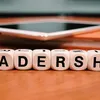
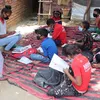
![[TechSparks 2020] From entrepreneur to leader: 30 quotes on the inspiring journey of a founder](https://images.yourstory.com/cs/2/28b451402d6a11e9aa979329348d4c3e/Leader7-1604751512332.png?fm=png&auto=format&h=100&w=100&crop=entropy&fit=crop)




